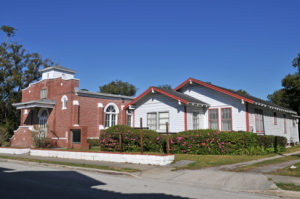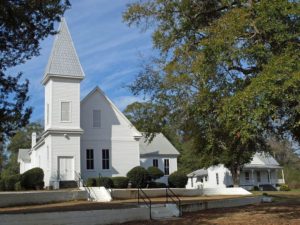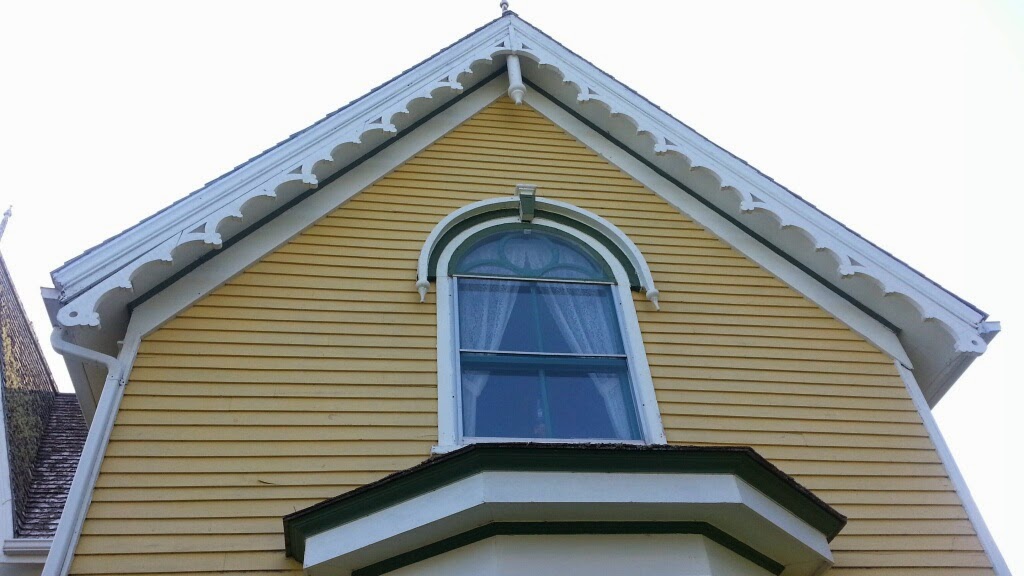Housing Allowance Tax Benefit
The minister’s housing exclusion provides one of the most significant tax benefits for those who qualify as “ministers of the gospel” under the tax law. This exclusion from income tax is available to ministers who own their own homes and to those who live in church-provided housing. These concepts apply to all “church” organizations that employ ministers, including ministries that may not be a traditional “steeple” church but meet the tax law qualifications to be recognized by the IRS as a church (examples include integral agencies of a church, conventions, or associations of churches). References to “church” or “churches” throughout this resource are intended to include all of these organizations employing ministers who may qualify for the minister’s housing exclusion
Housing Allowance was challenged in federal court as unconstitutional preference for religion. In 2019, a federal appeals court rejected the challenged and affirmed the constitutionality of the housing allowance.
The most important tax benefit available to ministers who own or rent their homes is the housing allowance exclusion. It is non-reportable income for federal tax purposes.
The minister’s housing exclusion is an exemption from federal income tax only—not social security tax. Under the U.S. social security tax framework, all ministers are considered self-employed (even though they are considered employees for income tax purposes). Therefore, ministers must pay the full amount of social security tax (without the benefit of the amount being matched by the employing church) on all forms of compensation up to the annual social security wage base—unless the minister has met the strict qualifications and has formally opted out of social security).
The IRS does not place a percentage limitation on how much of a minister’s compensation may be designated as a housing allowance by the employer. In a few instances, such as with bi-vocational ministers, 100% of cash compensation may be justified as a housing designation and exclusion. It is often best for the church to over-designate a minister’s housing allowance by a reasonable amount (e.g. 10% of anticipated costs), subject to the fair rental value limitation, to allow for unexpected housing expenses and increases in utility costs. However, the minister may only exclude the amounts actually paid within the year for housing-related expenses. In addition to these limits, the housing exclusion may only apply to one residence at a time.
Construction costs qualify as housing expenses. However, since the housing exclusion only applies to one home at a time, excluding construction costs expended while living in another home is problematic. It is inappropriate for a church to directly reimburse expenses related to minister-owned housing because the expenses are not the responsibility of the church. Instead, these expenses are eligible for inclusion under a cash housing allowance paid by the church

Housing Allowance if you Own or Pay Rent
Ministers who own or rent their home do not pay federal income taxes on the amount of their compensation that their employing church designates in advance as housing allowance to the extent that
- the allowance represents compensation for ministerial services,
- is used to pay housing expenses, and
- does not exceed the fair rental value of the home (furnished plus utilities)
The housing allowance amount designation must be part of the minister’s salary and be used exclusively for providing a home. It can cover the following costs:
- Rent
- Mortgage payments
- Real estate taxes
- Home Insurance
- Utilities such as electricity, water, pest control, security system
- Furniture
- Repairs and Maintenance
- Landscaping expenses
This allowance can be excluded on a minister’s tax return, but it should not exceed the fair rental value of the home, including furniture and utilities. If the amount does exceed the fair value, the extra portion is taxable.

Housing Allowance if the Church Provides a Parsonage
Ministers can exclude from their income a rental allowance or the fair rental value of a parsonage that is provided to them as pay for their services. This exemption applies only for income tax purposes. The exclusion does not apply to self-employment taxes.
For a payment to qualify for the income tax exclusion, the church must officially designate it as a housing or rental allowance before it is actually paid. A definite amount must be designated. The amount of the allowance cannot be determined at a later date.
If you receive a rental allowance, you can exclude it from your gross income if the amount is used to provide or rent a home, and it does not constitute excessive pay for your services or exceed the fair rental value of the home, including furnishings, plus the cost of utilities.
If the church provides a residence, you can exclude from gross income the fair rental value of the house, including utilities, furnished to you as part of your earnings. But just like a rental allowance, the exclusion cannot be more than the reasonable pay for your services. If you pay for the utilities, you can exclude any allowance designated for utility costs, up to your actual cost.
Example: Rev. Joan Carlton is a full-time minister. The church allows her to use a parsonage that has an annual fair rental value of $24,000. The church pays her an annual salary of $60,000, of which $7,500 is designated for utility costs. Her actual utility costs during the year were $7,000. For income tax purposes, Rev. Carlton excludes $31,000 from gross income ($24,000 fair rental value of the house plus $7,000 from the allowance for utility costs).
She will report on her 1040 as income $53,000 ($52,500 net salary plus the $500 of unused utility allowance). However, her income for self-employment tax purposes is $84,000 ($60,000 gross salary plus the $24,000 fair rental value of the home).

How to designate the Housing Allowance
Housing allowances require action by the church. A cash housing allowance is only excludable under the following rules:
- The allowance must be officially designated by the church. The designation should be stated in writing, preferably by resolution of the board (or a committee of the board) in an employment contract. If the only reference to the housing allowance is in the church budget, the budget should be formally approved by the board.
- Tax law does not specifically say that an oral designation of the housing allowance is unacceptable. Still, the use of a written designation is highly recommended. The lack of a written designation significantly weakens the defense for the housing exclusion upon audit.
- The housing allowance must be designated prospectively (in advance) by the church. Cash housing allowance payments made prior to a designation of the housing allowance are fully taxable for income tax purposes. Carefully word the resolution so that it will remain in effect until a subsequent resolution is adopted.
- Only actual expenses can be excluded from income. The source of funds used to pay for a minister’s housing expenses must be compensation earned by the minister in the exercise of ministry in the current year.
- Only an annual (not month-by-month or paycheck-by-paycheck) comparison by a minister of housing expenses to the housing allowance is required. Example: A church designates a housing allowance in December, effective for the following year, of $30,000 for a minister. The comparison of the $30,000 allowance with actual housing expenses is only required at the end of the year by the minister
If you need help in preparing the housing exclusion document that must be prepared by the minister or the Housing Allowance Declaration Applicable to Minister-Provided Housing prepared by the Church, please send us a message with your contact information below and we will be happy to assist you and your church.
We will come to your location!
If you need help to properly organize your church, let us know! We will be happy to help.
Fill out eh form below to E-mail us.

